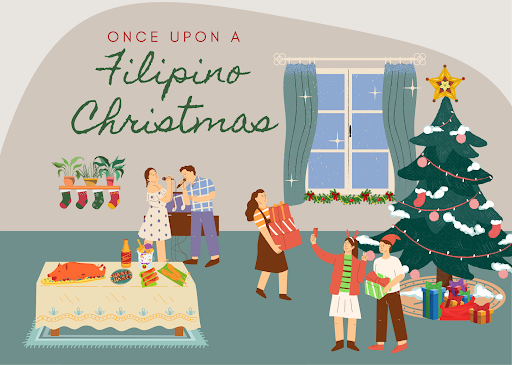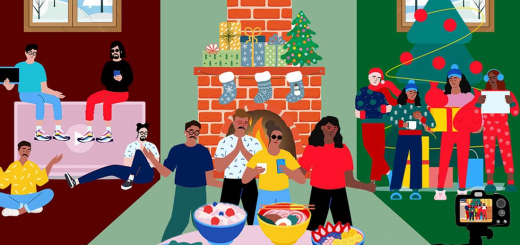Once Upon a Filipino Christmas

When you hear the song lyrics “🎵Whenever I see boys and girls… 🎵” , a famous song from Filipino singer Jose Mari Chan on the 1st day of September, you will know that Christmas is just around the corner. Three months might seem like a long period of time to prepare for the holiday season, but before you know it, the most awaited time has arrived.
While the rest of the world has its own traditions for celebrating Christmas, the Philippines is quite unique in this regard. The country is known for welcoming Christmas in September and suspending it for the first week of November to observe All Saints Day and All Souls Day, then continuing to celebrate for the holiday season until January.
As a result of the country’s deep colonial influence, Christmas is a season that is taken seriously by the majority of the population. It is also the season of the year that most Filipino families look forward to because it is the time to get together and exchange gifts, but most importantly, it is the time of year when families express their strong Catholic faith. Filipinos are known for their family values, and celebrating Christmas with the entire family is a tradition passed down from generation to generation.
On Christmas Eve, which is commonly referred to as Noche Buena, several Filipino dishes are usually served at the table during a traditional Filipino Christmas celebration: lechon, keso de bola, Filipino-style spaghetti, ham, the famous lumpia, and rice desserts. An activity that kids enjoy during Christmas Eve like caroling can’t be missed as well.
Simbang Gabi, a devotional nine-day series of masses held before the sun rises, adds to the excitement of Christmas. Many people believe that if one completes the Simbang Gabi, a wish will be granted. This inspires many people to get up early in the morning in the hopes of getting what they desire.
So, how do we explicate Filipino Christmas? It is possible to put it this way: Filipinos usually start decorating their houses in September as a way to welcome the season, attend the nine days Simbang Gabi from December 16 – 24, then exchange gifts and Noche Buena on Christmas eve. Noche Buena is a time where Filipino delicacies are enjoyed with a drinking session with family and friends, which is called “inuman.” Overall, a Filipino Christmas is full of love, joy, and giving. Filipinos give so much value to Christmas because it reflects a lot of Filipino values. Christmas time increases the chance of showing our appreciation to the people we love and detaching ourselves from resentments that were piled up throughout the whole year.





